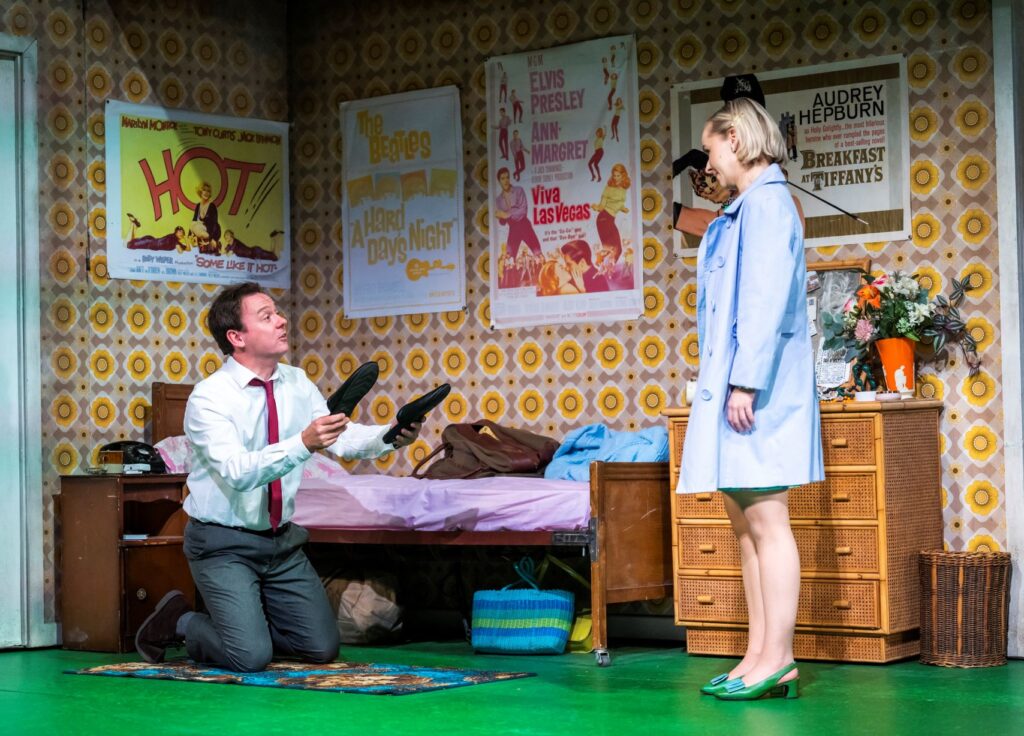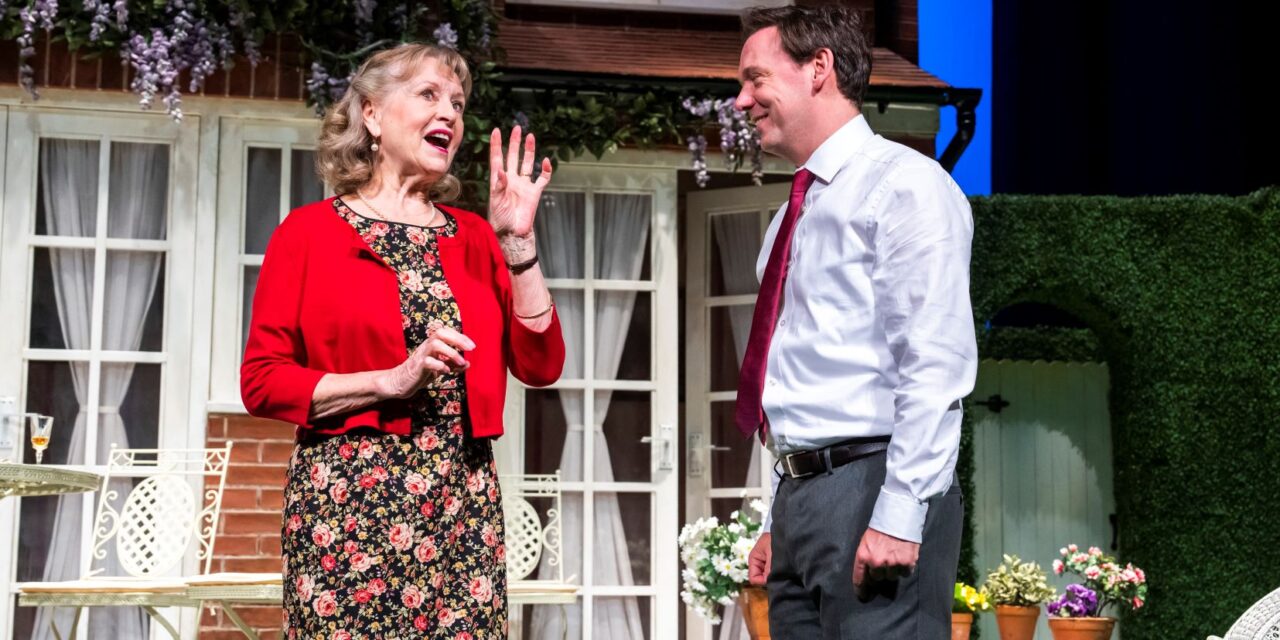
12 – 21 January
If I were to sum up this play in one word it would be ‘clever’. Looking back to Alan Ayckbourn’s first flush of success it seems remarkable that such an illustrious career could have been built on such scant material. But it was and the explanation is to be found, at least in part, in that one word, for the whole plot of Relatively Speaking swings on the simple premiss that the British are unable to ask direct personal questions of strangers, or indeed anyone. A simple misunderstanding, which any number of simple questions could have cleared up in a moment, is allowed to grow.
Again it is clever inasmuch as an affair is brought into the house (or garden) from the bedroom and thrashed out, as it were in disguise, before the relevant, but slightly bemused parties. It is a clever device, which puts the audience in the position of all-knowing umpires as the pros and cons, the ins and outs, the half truths and lies are shaken and stirred. But this is the world of comedy and Mr Ayckbourn was clever enough to know that the audience would happily go along with the conceit, for the British know that where there is infidelity there is a laugh to be had with every mis-step of the deceit.
Ginny (Olivia Le Andersen) is in love with Greg (Antony Eden) so sets about breaking off the affair she has been having with the older – and married – Philip (Steven Pacey) who has become something of a pest, sending flowers and gifts to the flat she shares with Greg. She takes the bold decision to confront Philip at his comfortable suburban home. Greg, believing she has gone to her family home, follows on, but arrives before her.
Under the confident direction of Robin Herford, who knows as much about directing Ayckbourn as anybody, the cast set about mining the possibilities that arise from misunderstanding and deceit.
Liza Goddard is radiantly vague and uninquisitive with all the good manners that allow the spring of dramatic irony to gradually tighten until, to the great delight of the audience, it unwinds in little outbursts of suburban frustration and bafflement. Antony Eden’s Greg, also bright as a button behind his own veil of ignorance and Ms Andersen’s confident Ginny are the perfect cogs in the winding up of the plot. Steven Pacey as the disappointed adulterer, builds up a head of steam which is released in some amusing comic outbursts.
For all the passage of time since its first production the play still has the power to delight in its clever construction.
★★★★☆ Graham Wyles 17 January 2023
Photo credit: Tristram Kenton


